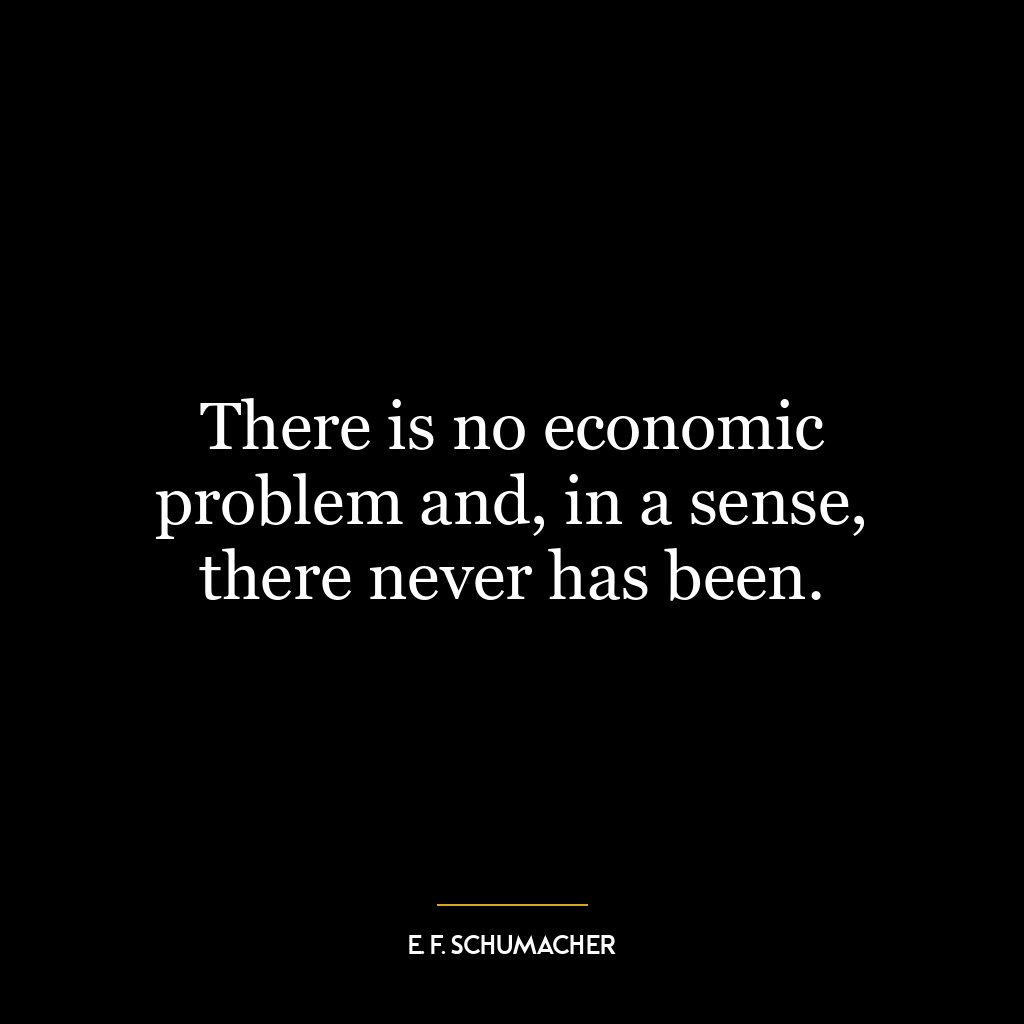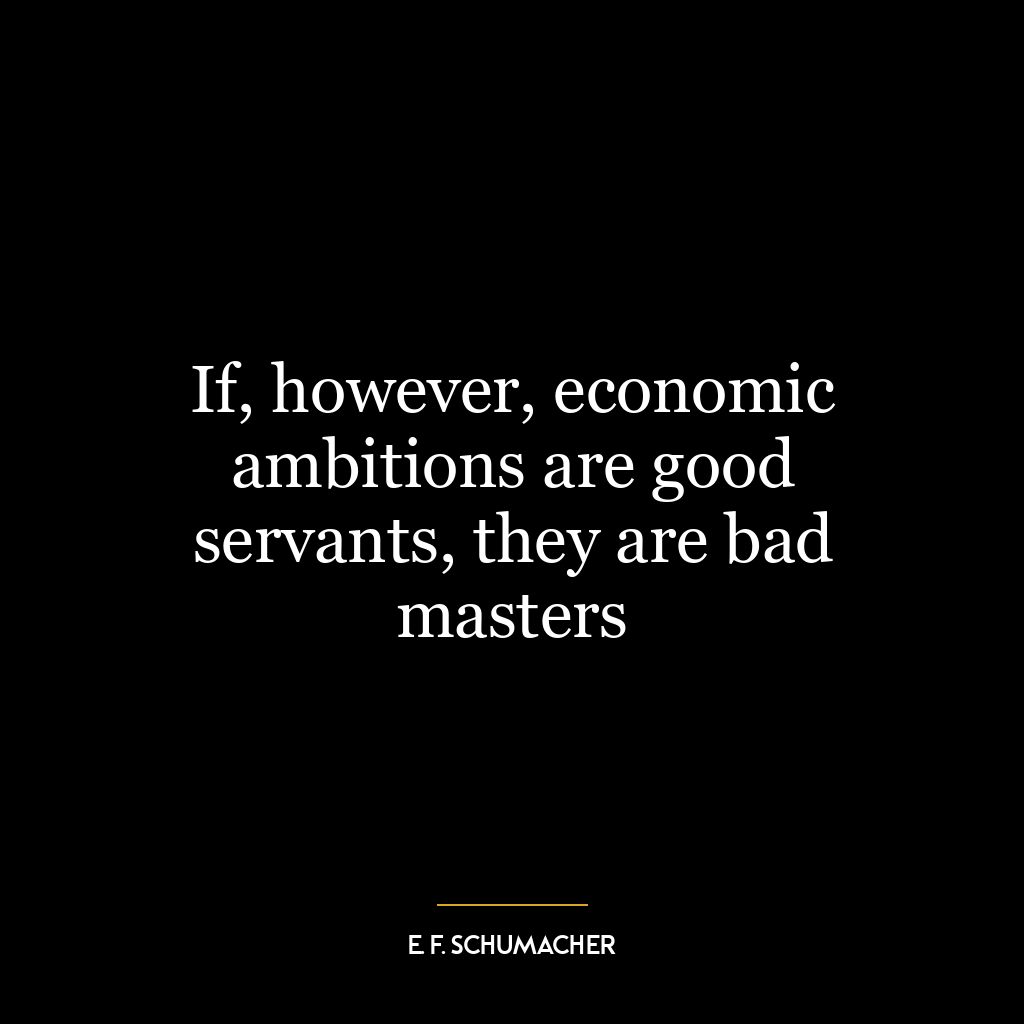E. F. Schumacher Quotes
- Statistician
- Germany
- 1911 - 1977
E. F. Schumacher (1911-1977) was a German-born British economist and philosopher who is best known for his book Small is Beautiful: A Study of Economics As If People Mattered (1973). His work focused on the idea of human-scale, appropriate technology, and the importance of local economies. He was a…Read More
E. F. Schumacher (1911-1977) was a German-born British economist and philosopher who is best known for his book Small is Beautiful: A Study of Economics As If People Mattered (1973). His work focused on the idea of human-scale, appropriate technology, and the importance of local economies. He was a proponent of sustainable development and advocated for a more equitable distribution of resources. He also wrote several other books, including Good Work (1979) and A Guide for the Perplexed (1977). His ideas have been influential in the development of the green movement and the concept of sustainable development.Read Less
E. F. Schumacher (1911-1977) was a German-born British economist and philosopher who is best known for his book Small is Beautiful: A Study of Economics As If People Mattered (1973). His work focused on the idea of human-scale, appropriate technology, and the importance of local economies. He was a proponent of sustainable development and advocated for a more equitable distribution of resources. He also wrote several other books, including Good Work (1979) and A Guide for the Perplexed (1977). His ideas have been influential in the development of the green movement and the concept of sustainable development.
18 Top E. F. Schumacher Quotes
E. F. Schumacher Career Highlights
E. F. Schumacher was a renowned economist, statistician, and philosopher who made significant contributions to the fields of development economics and environmentalism. He is best known for his influential book “Small is Beautiful: Economics as if People Mattered,” which has been translated into over 20 languages and sold millions of copies worldwide.Born in Germany in 1911, Schumacher studied at the London School of Economics and later worked for the British Coal Board and the National Coal Board. In 1950, he became the chief economic advisor to the British National Coal Board, where he developed a keen interest in the economic development of developing countries.
Key Contributions by E. F. Schumacher
Schumacher’s most significant contribution was his concept of “Buddhist economics,” which emphasized the importance of human well-being and the preservation of the environment over materialistic growth. He believed that traditional economic theories, which focused solely on maximizing profits and economic growth, were unsustainable and harmful to both people and the planet.In addition to his groundbreaking book “Small is Beautiful,” Schumacher also published several other influential works, including “A Guide for the Perplexed” and “Good Work.” He also co-founded the Intermediate Technology Development Group (now known as Practical Action), a non-profit organization that promotes sustainable development in developing countries.
What Sets E. F. Schumacher Apart
What sets E. F. Schumacher apart is his unique perspective on economics, which combined elements of Western economic theory with Eastern philosophies and values. He challenged the dominant economic paradigm and offered a more holistic and sustainable approach to development.Schumacher’s ideas continue to inspire and influence economists, environmentalists, and policymakers around the world. His work has been praised by prominent figures such as the Dalai Lama and has been incorporated into the policies of many governments.
Takeaways
E. F. Schumacher’s legacy is one of promoting a more humane and sustainable approach to economics and development. His ideas continue to be relevant and influential in today’s world, where issues such as climate change and economic inequality are at the forefront.Schumacher’s work serves as a reminder that economic growth should not come at the expense of human well-being and the environment. His teachings encourage us to rethink our current economic systems and strive for a more balanced and equitable world.























